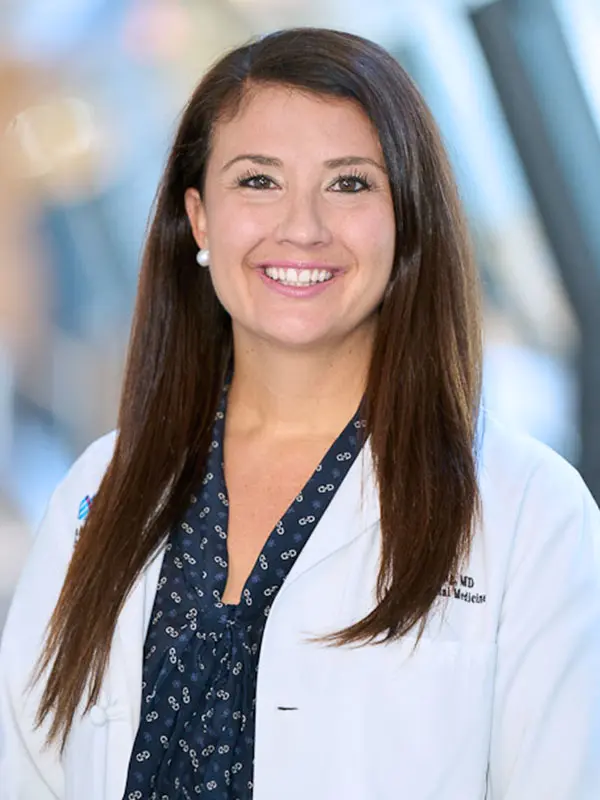A multidisciplinary specialty clinic for women who have experienced stillbirth is being launched in spring 2022 by the Department of Obstetrics, Gynecology, and Reproductive Science at the Icahn School of Medicine at Mount Sinai, in collaboration with the nonprofit foundation PUSH for Empowered Pregnancy.
The clinic, at The Mount Sinai Hospital, will support women and their families who have experienced stillbirth by providing enhanced clinical care and psychological support in subsequent pregnancies to help reduce fear, anxiety, and future perinatal losses, says Joanne Stone, MD, MS, Chair of Obstetrics, Gynecology, and Reproductive Science for Icahn Mount Sinai and the Mount Sinai Health System.
“Our goal for the clinic is to help women who have experienced the loss of a baby to achieve a successful pregnancy by providing them with access to state-of-the art services and support that goes beyond standard prenatal care to meet all of their needs,” Dr. Stone says. “I am excited to be part of this undertaking and to offer patients a champion for a positive outcome through equitable care.”
About 23,000 pregnancies, or about one in 170 births, nationwide result in stillbirth each year, according to the Centers for Disease Control and Prevention. In New York City, there are approximately 900 stillbirths each year. Data also show that women of color are more likely to experience a stillbirth, with the risk among Black women twice as high as any other group.
Women who have experienced stillbirth are almost five times as likely to experience another stillbirth or severe maternal complication, Dr. Stone says, but studies have found that with greater awareness, support, and high-quality care, more than a quarter of stillbirths in the United States are preventable.
Dr. Stone, who will lead the clinic, is a renowned physician-scientist in women’s health with special expertise in fetal imaging and caring for high-risk pregnancies. She serves as the Chair of the Sonography Community for the American Institute of Ultrasound in Medicine (AIUM) and the President-Elect of the Society of Maternal Fetal Medicine (SMFM).
“Our goal for the clinic is to help women who have experienced the loss of a baby to achieve a successful pregnancy.”
- Joanne Stone, MD, MS
“Dr. Stone is well known among women and families throughout the New York City community as the go-to specialist to see when you become pregnant following a loss and want to ensure that you’re getting the best possible care and support during the harrowing experience of trying to bring home a ‘rainbow baby’ after the death of your previous child,” says Samantha Banerjee, Executive Director of PUSH, the nonprofit foundation dedicated to driving down the incidence of stillbirth.
Fernanda Sheridan, Medical Co-Director of PUSH and the stillbirth mom who pioneered the idea of bringing the Rainbow Clinic concept to the United States, elaborates: “Dr. Stone’s expertise is a major factor in our decision to partner with Mount Sinai to launch this concept in the United States. We also recognize Mount Sinai as one of the most innovative hospital systems in the world, and we believe that once we open this clinic to effectively reduce stillbirths, every health care center nationwide will adopt this approach to establish their own clinics.”
The Mount Sinai clinic will replicate the “Rainbow Clinic” model established in the United Kingdom. The multidisciplinary staff will undergo specialized training to better understand the emotional needs of families and minimize negative psychological impacts. The clinic’s care will be customized around the needs of each patient and family based on a pre-conception consultation that includes a review of their medical history and determines a cause of the previous stillbirth, as well as a strategy for conception and pregnancy to achieve positive outcomes.
All patients will be able to access a range of services, including mental health support, nutritional guidance, ultrasounds, and other tests during the progression of the pregnancy. Patients will also have access to monitoring and testing services that are typically not available through other prenatal programs, such as estimated placental volume monitoring, which can help guide the course of treatment and care.
In addition to patient-tailored treatment, the clinic will conduct new research to uncover insights on risk factors that contribute to stillbirth. Dr. Stone will explore opportunities for collaboration with other health centers.
“As important as it is to provide care to patients who have lived through this trauma and improve their future course of treatment, it is also imperative to gain the necessary insights to prevent stillbirths from happening in any pregnancy,” she says. “The more data we can gather from our diverse patient population at Mount Sinai, the bigger the impact we can have in addressing this ongoing crisis.”
Featured

Joanne L. Stone, MD, MS
Chair and Professor of the Raquel and Jaime Gilinski Department of Obstetrics, Gynecology and Reproductive Science

Noël Strong, MD
Assistant Professor of Obstetrics, Gynecology and Reproductive Science